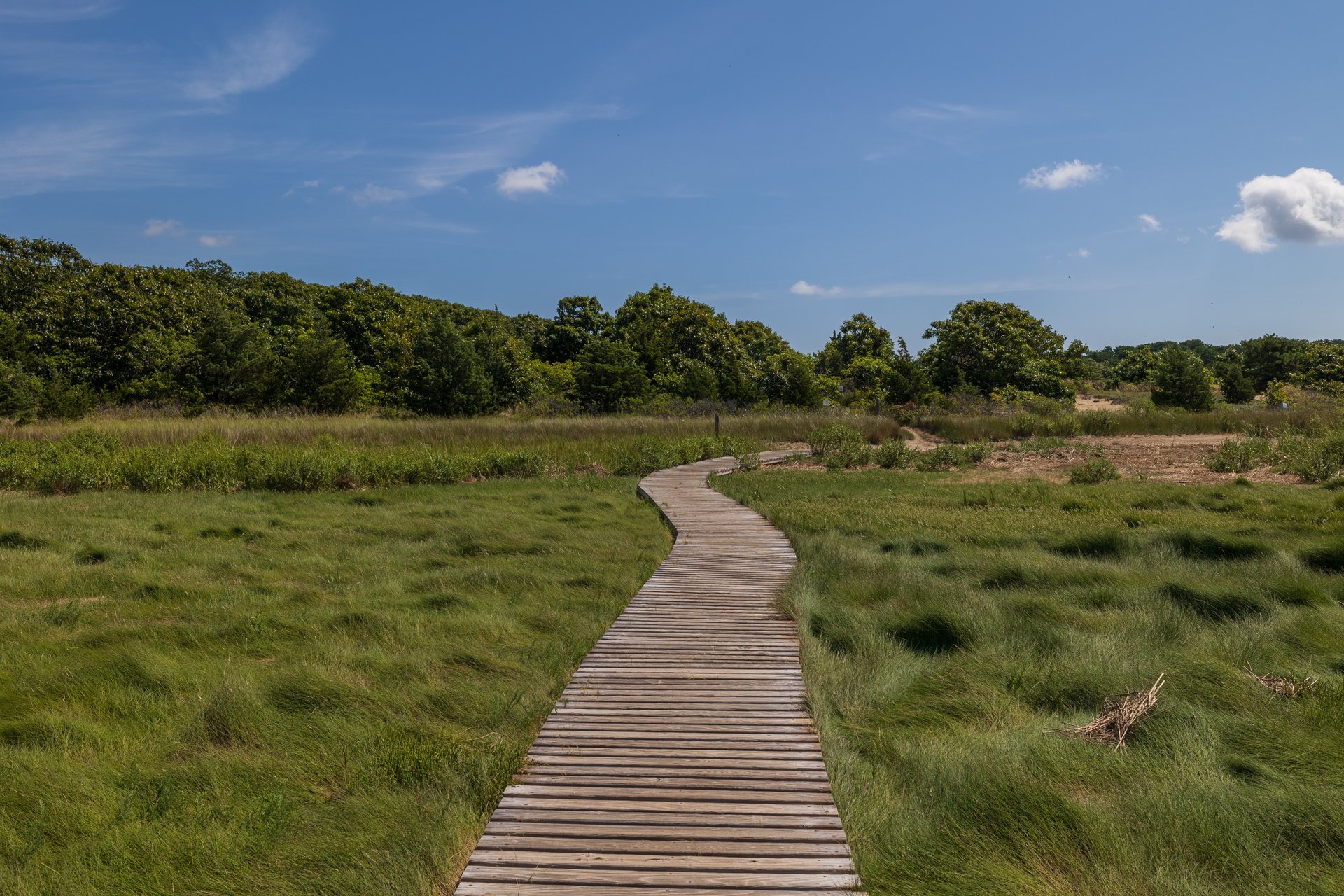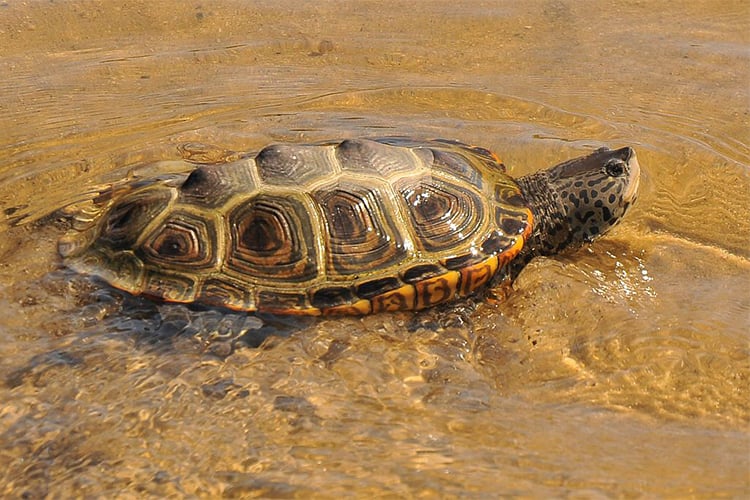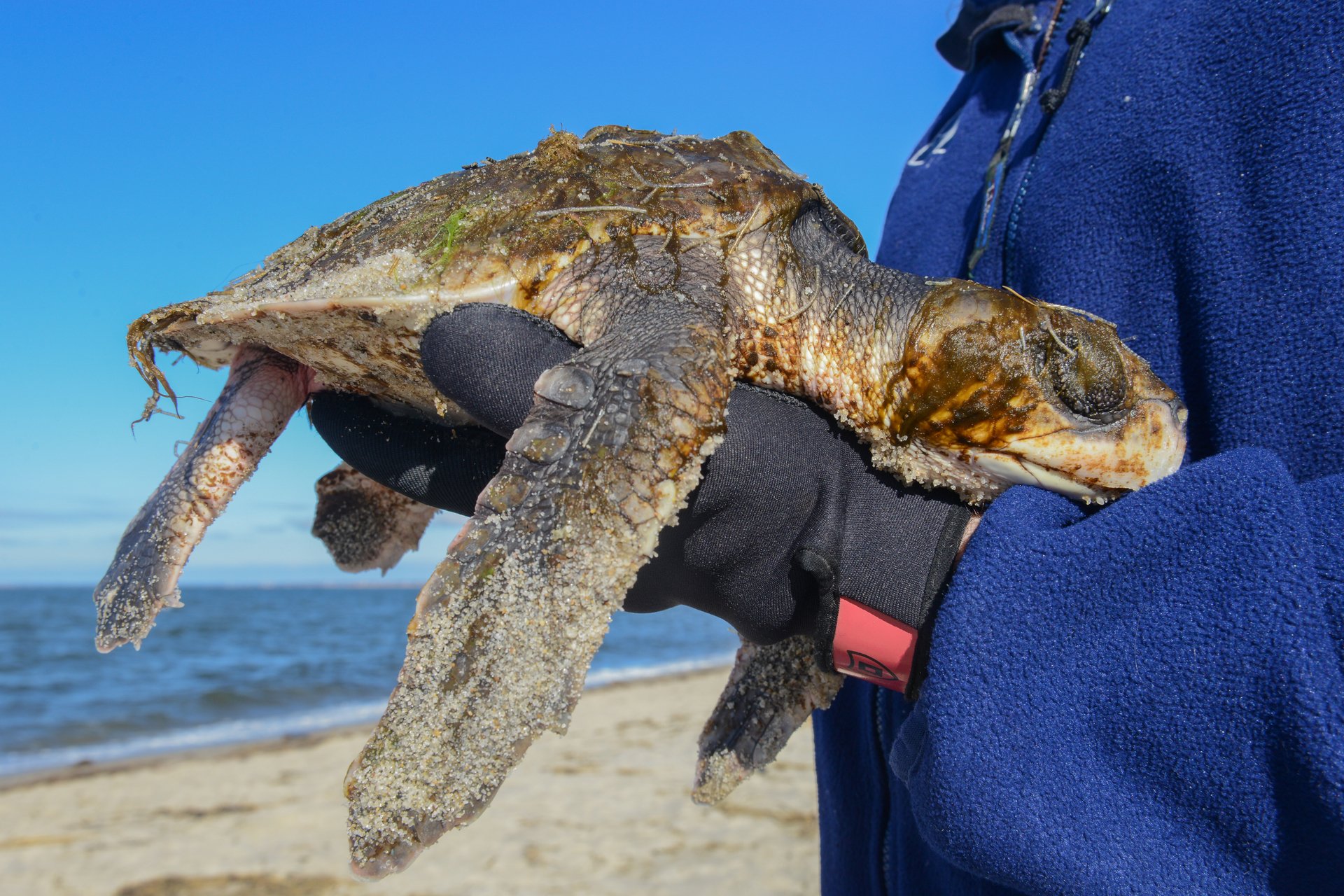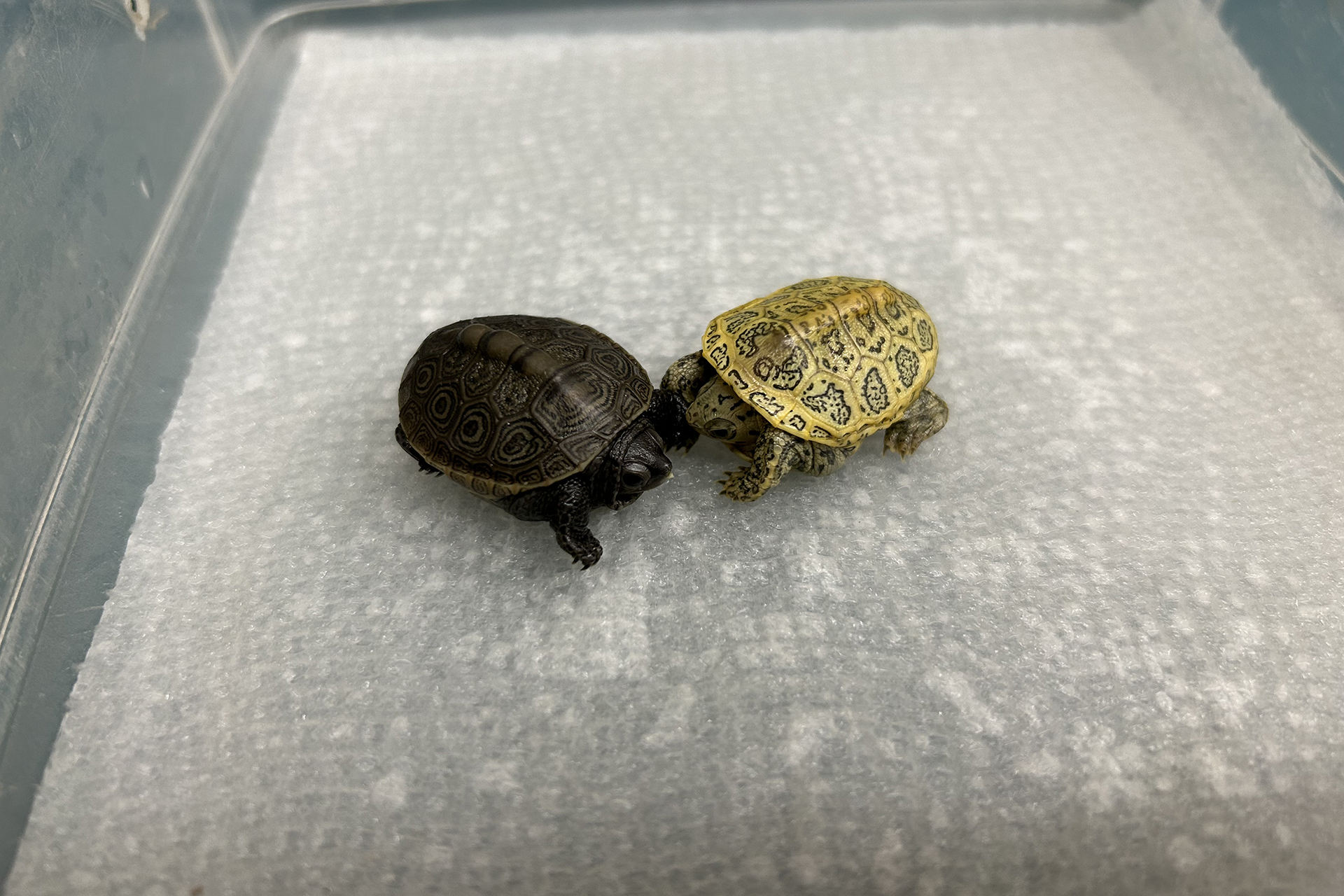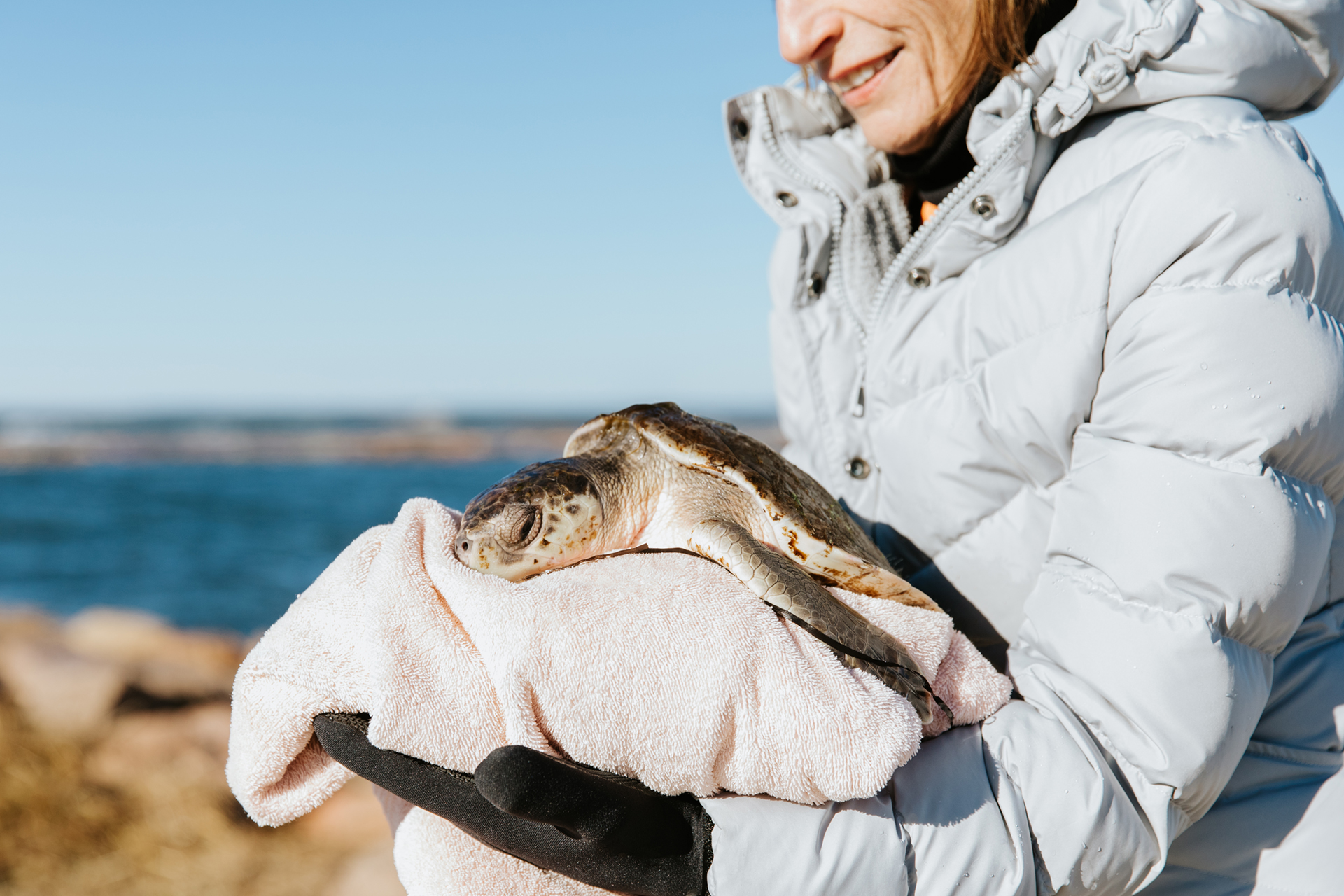Monitoring Diamondback Terrapins at Wellfleet Bay
Wellfleet is home to the most northerly population of the Diamondback Terrapin (Malaclemys terrapin). This striking species is the only turtle in North America that makes its home exclusively in brackish water, where salt water from the ocean mixes with fresh water.
Nearly hunted to extinction in the nineteenth century as a culinary delicacy, the Diamondback Terrapin population rebounded after its popularity as a food declined. However, the species is once again threatened throughout its range by increased predation, habitat loss, and the wildlife pet trade.
Terrapins spend nearly all of their life in a narrow strip of salt marsh that connects the ocean to the mainland. Each year in June and July, females come on land to lay their eggs in sandy patches above the high tide line. After about 70 days of incubation the eggs hatch, and the hatchlings make their way into the upper grasslands of the marsh. They remain in the uplands for about four years, after which they make their way into the marsh itself.
The Diamondback Terrapin is officially listed as "Threatened" in Massachusetts. Local populations have fallen dramatically, especially on Cape Cod.
Rampant development of salt marshes and the surrounding uplands has greatly reduced the terrapin’s natural habitat, and heavy summer traffic has caused a marked increase in the number of females struck by cars each year. In addition, the increasing numbers of humans on the Cape has caused an explosion in local populations of foxes, raccoons, and skunks. These species thrive in proximity to humans and are the primary predators of terrapin eggs and hatchlings.
Wellfleet Bay Wildlife Sanctuary has been marking individual terrapins with unique identification numbers since the 1980s, which allows us to track individuals from year to year. Then, in 2005, we began actively protecting terrapin nests in the hope of preventing the loss of eggs to predators. Since then, we have released thousands of hatchlings around the sanctuary and our satellite monitoring sites. In 2019 alone, we safely released over 4,000 hatchlings!
Through our conservation work, we hope to protect this enigmatic species and the salt marshes it calls home.
Get Involved
Report Sightings
If you see a terrapin while hiking our trails, call the sanctuary at 508-349-2615.
Volunteer
Our terrapin work depends almost entirely on our corps of over 80 volunteers. Twice each day from June to October, our volunteers go into the field to search for terrapins, nests, and hatchlings. If you’re interested in becoming a volunteer, read the brochure below to find out more about what's involved.
Support Our Work
Ensure that terrapins have protected nesting habitats, and that our thousands of hatchlings are released into the wild.
What's New
See MoreA 50 Year Journey to Save the Critically Endangered Kemp's Ridley Sea Turtle
Keep ReadingA Golden-colored Hatchling—and a Few More Surprises—for Cape Cod’s Terrapin Nesting Season
Keep ReadingCold-Stunned on Cape Cod
Keep Reading


